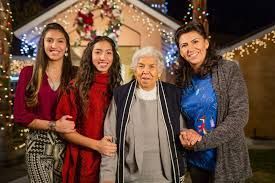Breast Cancer and Hair Loss
Breast Cancer and Hair Loss

Most people experience hair loss from chemotherapy as the treatment for breast cancer. The chemo drugs target the cells so some healthy cells get damaged along with the cancerous cells.
The good news is that not all chemotherapy causes hair loss; how much hair loss you experience depends on the type of drug you are given and the dosage.
This can be devastating, especially for women, so how do you prepare for losing your hair?
You may choose to cut your hair short or start wearing headwear now in order for you to get used to the feel and look. If the cancer is caught early enough and you have long hair, you can cut it short and take it to an organization that makes wigs out of your own hair.
If this is not the case for you, you may want to start looking at wigs, or choose to go bald; after all bald is beautiful!!
Make sure you protect your scalp should you decide to go au naturel.
Your head will be particularly sensitive so be sure to use plenty of sunscreen underneath your hat; remember, your head hasn’t had the full effect of the sun, your hair was always there to protect it.
If your scalp becomes dry, flaky, or itchy, using a moisturizer or an oil such as almond or olive may help.
As I stated above, losing your hair can be devastating and some people tend to feel guilty because they get so upset over it. They feel there are many worse things to be upset over other than hair loss, but it can make you feel vulnerable and exposed.
There is no right or wrong way to feel about losing your hair or about getting breast cancer; you feel the way you feel and you have a right to be upset if you choose to be.
Hair loss is a noticeable side effect and can change how you see yourself. Men who experience breast cancer have a very difficult time with losing the hair from their chest. Losing your hair may be a constant reminder of your cancer, or perhaps you are a very private person and now everyone can see you have cancer; this can be extremely difficult to deal with.
Some people have no problem with hair loss, others find it terribly difficult to accept and adapt.
There are some cultures and religions where hair has a special significance and losing it may affect your religious identity as well as your self-esteem. If the latter is the case, you may need to speak to a counselor for additional support.
How are others going to react to your diagnosis?
Who cares?!?!
This is your journey and your journey alone; no one has to know unless you want them to know. Some people only tell their close friends and family, while many others want everyone to know.
Everyone will respond to your hair loss in different ways and some may be hard to understand. Not everyone will know what to say or do; if they say or do anything it may be the wrong thing because they won’t know what to say. Be patient, they try.
Whatever you do, don’t quit being social.
This is so important, you may not feel like socializing, but you must otherwise you may become isolated and depressed.
Hanging out with friends can also serve as a wonderful distraction and help keep some level of normalcy in your life. Other people’s reactions may bother you at first, but your reaction to them should improve over time. Talk to others who have experienced this to see how they handled it.
If you have children, please talk to them about your breast cancer AND your hair loss.
Children don’t want to see their mother lose her hair if they don’t know what’s happening; help them prepare for what they will witness. Life is so stressful on kids now-a-days, please don’t add to their frustration.
If you find dealing with breast cancer and hair loss overwhelming, please seek support.
There are many organizations who will gladly help you. You may just have to check with your doctor’s office for local support.
Facebook has support groups, you can go to cancer.org to find support, breastcancernow.org has many resources also.
PLEASE find the help you need!!



